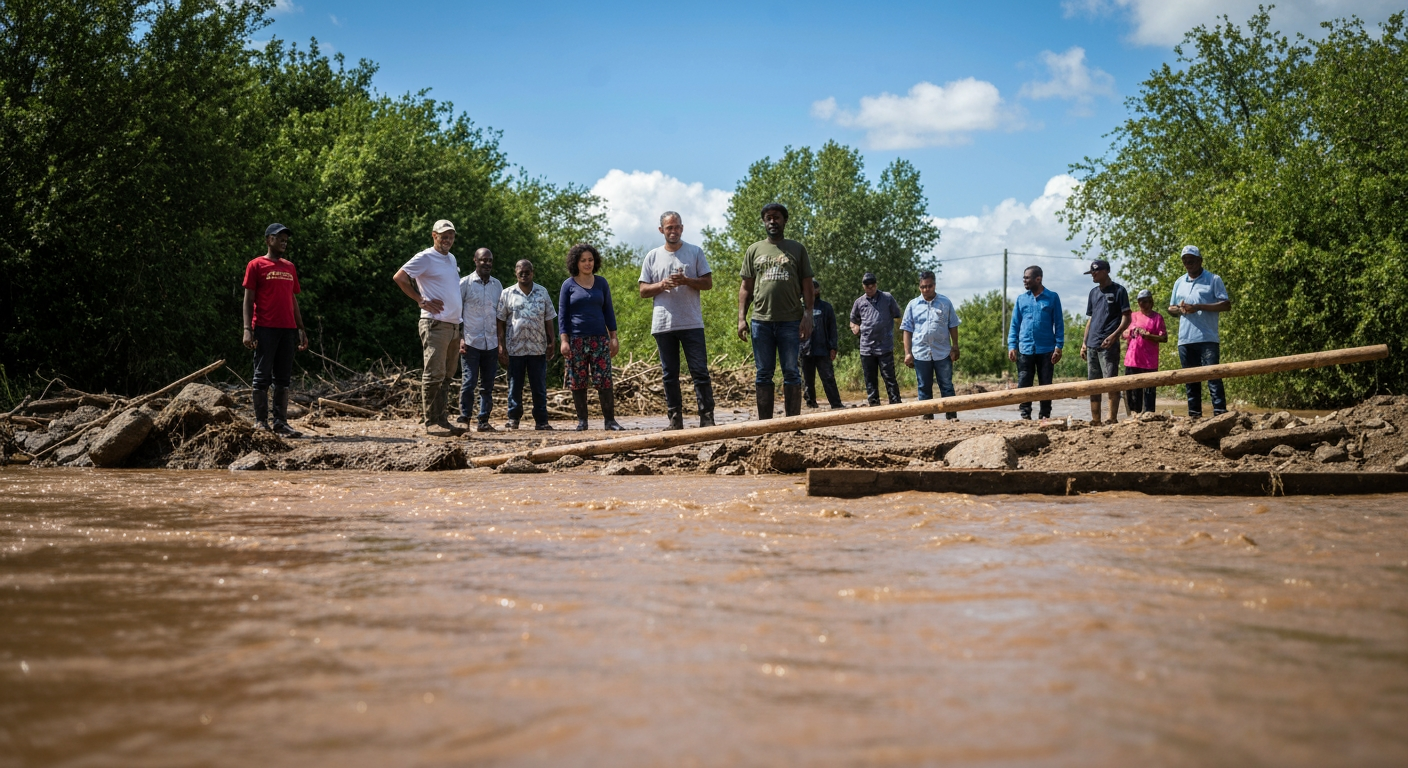Climate Science Under Threat as U.S. Faces Job and Funding Cuts

Sweeping budget cuts and workforce reductions are raising concerns about the future of climate science in the United States. The Trump administration's focus on slashing federal spending, coupled with a skepticism toward climate research, has led to significant job losses and funding freezes across multiple agencies. These actions are sparking fears of a decline in America's ability to understand and address the escalating challenges of climate change, potentially impacting everything from weather forecasting to long-term resilience planning.
Deep Cuts Across Agencies
The impact of the budget cuts is being felt across numerous federal agencies. The National Oceanic and Atmospheric Administration (NOAA), a leading climate science agency, has seen hundreds of employees laid off. Reports indicate that around 880 NOAA workers, including weather forecasters and climate scientists, were terminated recently as part of the administration's efforts to reduce the federal workforce. The National Science Foundation (NSF) has also experienced significant staff reductions, with a 10% cut to its workforce. The National Institutes of Health (NIH) faces billions in funding cuts for research-related administrative costs.
These cuts extend beyond personnel. The administration has moved to block scientific research funding across government agencies, targeting grants that mention climate change or diversity, equity, and inclusion (DEI). This has led to the dismantling of initiatives like the NIH's Climate Change and Health Initiative, which aimed to reduce health threats from climate change.
Impact on Research and Data Collection
The reduction in funding and personnel is already impacting climate research and data collection efforts. Scientists worry that crucial climate models and data could be lost due to a lack of maintenance. The termination of the Maine's Sea Grant program and potential cuts to the National Weather Service (NWS) raise concerns about the ability to monitor and predict changing weather and climate patterns.
Daniel Leathers, a professor emeritus and former state climatologist, emphasized the importance of data collection for understanding long-term climate trends. He warned that without continued monitoring, future generations will lack the information needed to make informed decisions about climate change. Danielle Swallow, a coastal hazard specialist, noted that NOAA's data is used across various sectors, including meteorology, agriculture, and aviation, to understand the impacts of weather and climate.
Concerns for Public Safety and Disaster Preparedness
Experts warn that the cuts could have serious consequences for public safety and disaster preparedness. Mass layoffs at the Federal Emergency Management Agency (FEMA) could slow disaster responses, lengthen wait times for payouts, and reduce the implementation of resilience efforts. The ability to update flood maps, which are critical for determining flood risk and insurance rates, could also be hampered.
The potential impact on weather forecasting is another major concern. Indian scientists have expressed worries that reduced climate observations by NOAA could affect monsoon forecasts and cyclone tracking in India. Climate scientist Roxy Mathew Koll of the Indian Institute for Tropical Meteorology described the layoffs as a global crisis that could impact climate science, noting that half of the Indian Ocean's observational network is backed by NOAA.
Impact on the U.S.'s Standing as a Global Science Leader
Many researchers fear that the U.S. is losing its status as a global science leader due to the funding cuts and political interference. The American Association for the Advancement of Science conference in Boston highlighted widespread anxiety among scientists over job losses and threats to university research programs.
The scrutiny of DEI programs and the targeting of research that references climate or diversity are also raising concerns about academic freedom and the politicization of science. Some universities are advising researchers to avoid using certain keywords to prevent their projects from being flagged during grant reviews.
Potential Economic Consequences
Beyond the immediate impacts on research and public safety, the budget cuts could have long-term economic consequences. A report by RAND examined the ways that climate change and climate change mitigation policy affect the federal budget. The report found that climate change will lead to increased spending on disaster relief, health care, and insurance programs, as well as a net reduction in revenue due to its effects on productivity and the labor force.
The loss of scientific expertise and the slowdown in technological innovation could also weaken U.S. competitiveness in the global economy. Some analysts suggest that the cuts could fast-track China's tech dominance by reducing funding for institutions that have underpinned U.S. science and technology.
A Bleak Outlook?
While the situation appears dire, some argue that the long-term impact remains uncertain. The job market for climate change analysts is expected to grow by 6% between 2022 and 2032, suggesting continued demand for professionals in this field. Additionally, clean energy jobs grew at more than twice the rate of the overall U.S. labor market in 2023, driven by federal investments in energy supply chains.
However, the immediate future for climate science in the U.S. looks challenging. The cuts are already leading to job losses, reduced research capacity, and increased uncertainty about the country's ability to address the growing threat of climate change. The long-term consequences of these actions could be significant, impacting everything from public safety and disaster preparedness to economic competitiveness and global leadership.


